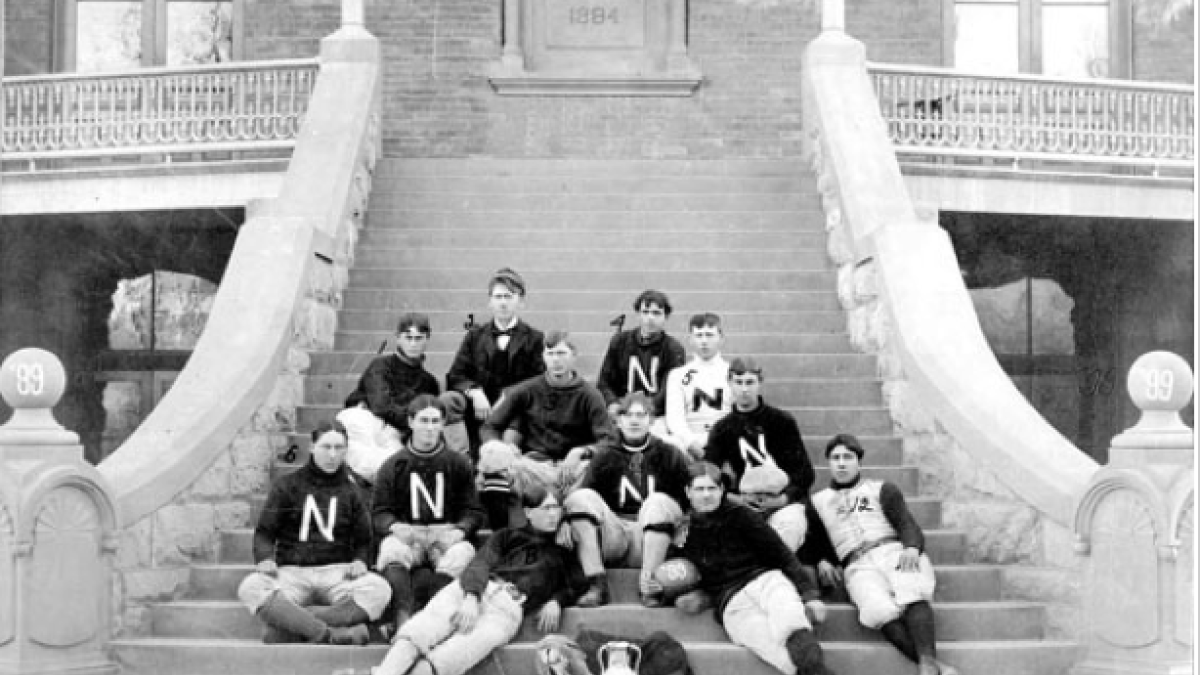Celebrating a rich history of Sun Devil Athletics

Editor’s Note: This is an op-ed by Lisa Love, vice president for Sun Devil Athletics.
On a windy day in February, 1891, on a primitive baseball diamond a few miles away from campus, a team from Tempe Normal competed against a squad from Stringtown – a Mormon settlement that eventually grew into Alma and later Mesa. This was the first recorded athletic event in the school’s history and provided the beginnings for what would later become one of the nation’s elite athletic programs.
For the next 121 years, the institution’s athletic teams would become a part of the fabric of the State of Arizona, and also the nation. What would follow was a celebrated and colorful sports history that must be cherished by all alumni, fans and Arizonans.
Of course, there is football. From turn-of-the-century football legend Charlie Haigler to the electrifying Whizzer White, to the modern-day stars like Terrell Suggs and Jake Plummer – the rich football lineage is well documented. When Dan Devine left ASU for Missouri and an assistant coach named Frank Kush took over in 1958, the team moved out of Goodwin Stadium and into the 30,000-seat Sun Devil Stadium. Today, after multiple additions, the stadium seats more than 70,000.
But there is much more to the history than what transpired on the gridiron. Who will forget coach Ned Wulk’s great basketball teams in the 1960s and 70s or the five NCAA baseball national championships of Bobby Winkles and Jim Brock?
Women began playing basketball on campus in 1898, although the school didn’t begin attracting national attention for women’s athletics until golfer JoAnne Gunderson (Carner) and diver Patsy Willard began to dominate their sports in the late 1950s and early 1960s.
Born in Phoenix, golfer Heather Farr won three state high school championships at Xavier College Prep and then won the U.S. Girls’ Junior and the U.S. Women’s Amateur Public Links. A statue in her honor sits outside the clubhouse at The Karsten Golf Course at ASU. Her success is indicative of the championship leadership of legendary golf coach Linda Vollstedt, who won six NCAA National Championships.
There are too many former student-athletes, coaches and administrators to mention in this short space. From Joe Island and Emerson Harvey, who helped break the color barrier for football student-athletes at ASU, to athletes at the top of their respective sports like golf’s Phil Mickelson, baseball’s Reggie Jackson and Barry Bonds, and track and field’s Herman Frazier and Dwight Phillips. The impressive list goes on and on.
Frank Kush has said on many occasions that the person who epitomizes what Sun Devil Athletics represents is Bill Kajikawa. Bill played and coached several sports at ASU, including football, basketball, baseball and wrestling. For over 40 years “Kaji” walked the campus at ASU, serving as a student-athlete, a coach and a professor while earning two degrees from the school.
Speaking of Kajikawa, there are several Sun Devils who have served our nation with class and dignity and who have earned the respect of our fellow Americans. Bill served with distinction in World War II in the Army’s 442nd Regimental Combat Team. The 442nd, manned entirely by Japanese-Americans, was the Army’s most decorated combat unit.
Former academic All-American Pat Tillman (1976-2004), who gave up an NFL career to join the U.S. Army Rangers, is an American hero and icon. No Sun Devil fan, nor American for that matter, will forget Pat’s unselfishness and unique personality.
How about former baseball player Rick Monday, who was a star player at ASU and in the Major Leagues? But Monday may be best known for what he did for America on April 25, 1976 at Dodger Stadium. During the game, in front of a television audience, Monday raced from his outfield spot, grabbed an American flag away from two protestors who were about to set fire to it, and saved it from destruction. Some have called it the greatest play in baseball.
Who will forget the 2011 image of ASU wrestler Anthony Robles, despite being born with one leg, winning the national championship in the 125-pound weight class and raising his arms high in victory. Robles’ feat remains a motivation to all of us.